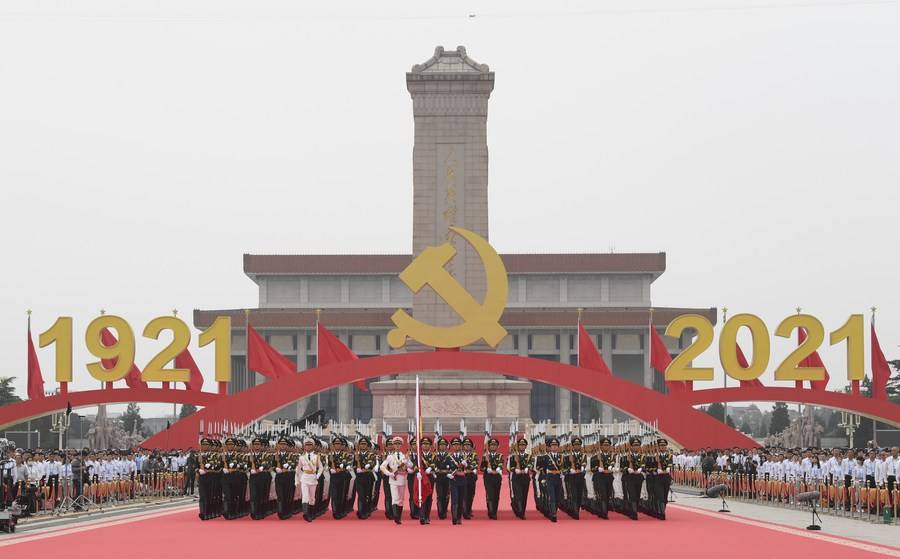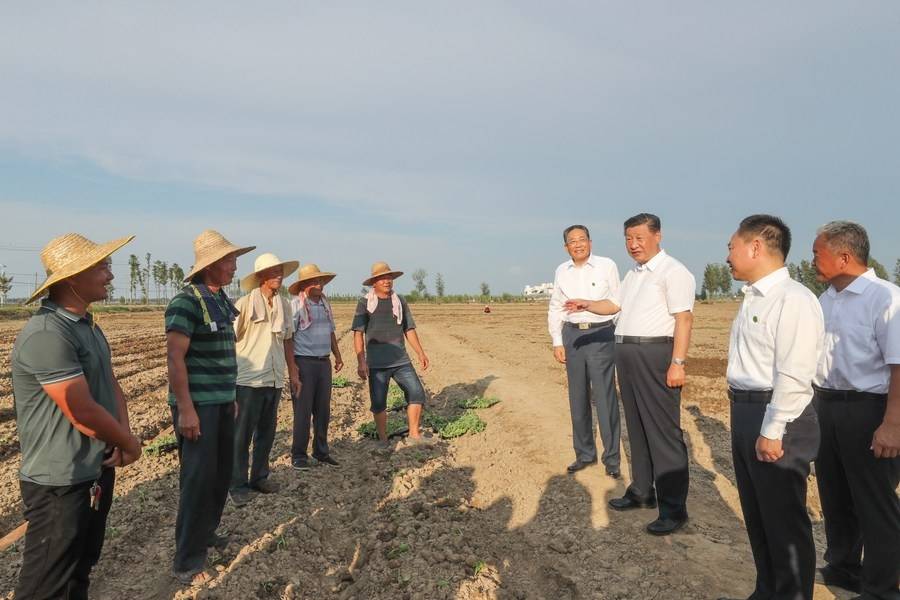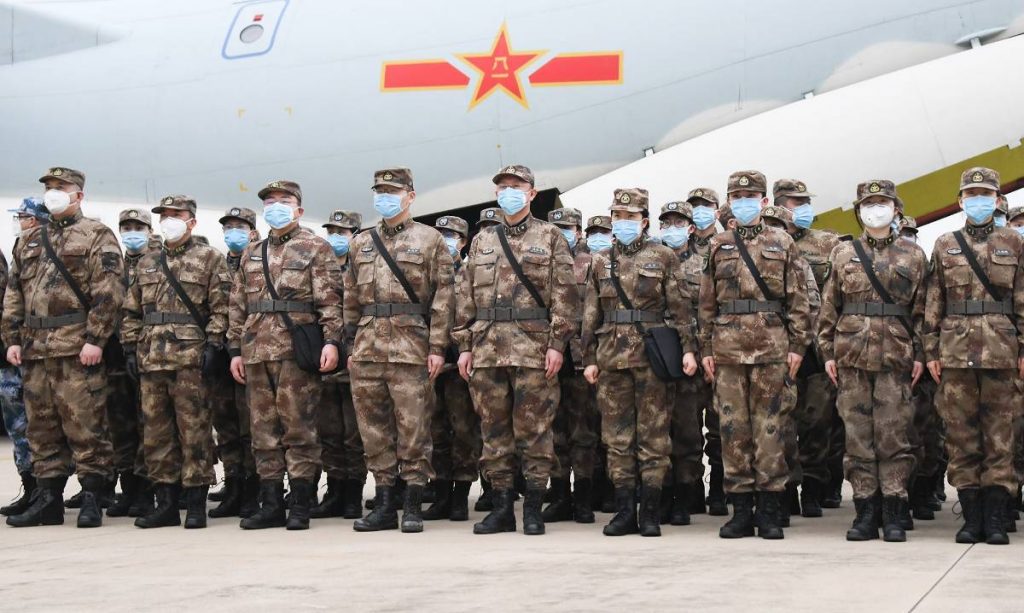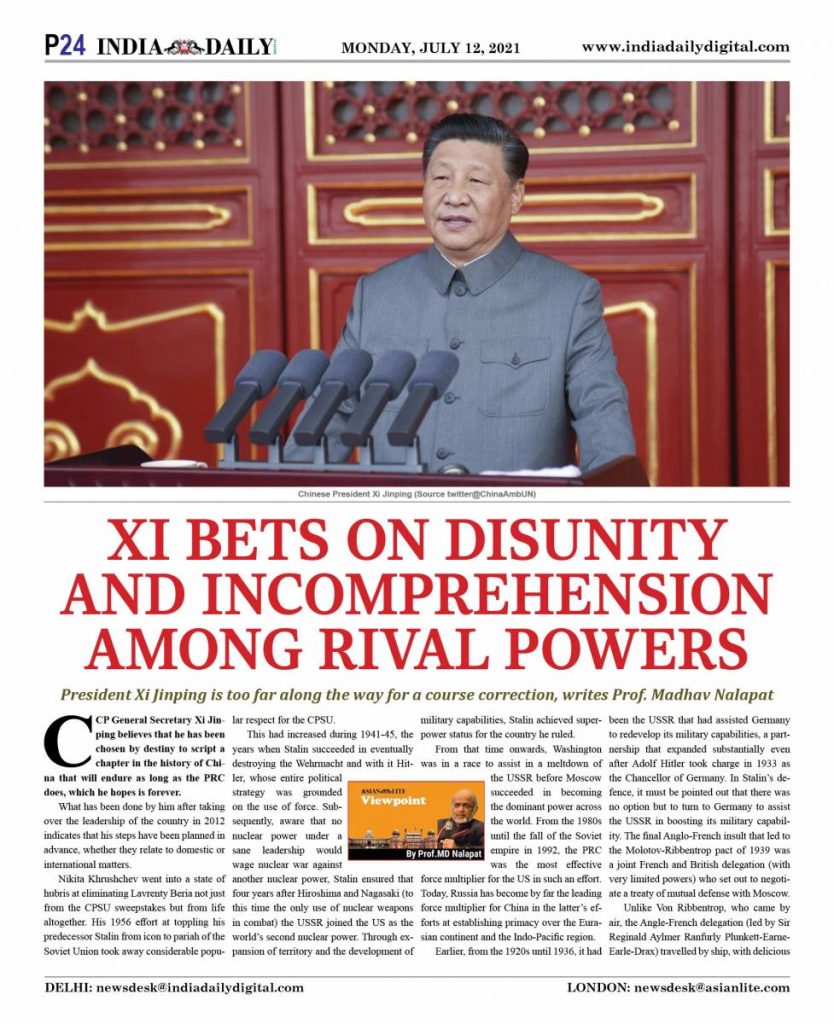
President Xi Jinping is too far along the way for a course correction, writes Prof. Madhav Nalapat

CCP General Secretary Xi Jinping believes that he has been chosen by destiny to script a chapter in the history of China that will endure as long as the PRC does, which he hopes is forever. What has been done by him after taking over the leadership of the country in 2012 indicates that his steps have been planned in advance, whether they relate to domestic or international matters.
Nikita Khrushchev went into a state of hubris at eliminating Lavrenty Beria not just from the CPSU sweepstakes but from life altogether. His 1956 effort at toppling his predecessor Stalin from icon to pariah of the Soviet Union took away considerable popular respect for the CPSU.
This had increased during 1941-45, the years when Stalin succeeded in eventually destroying the Wehrmacht and with it Hitler, whose entire political strategy was grounded on the use of force. Subsequently, aware that no nuclear power under a sane leadership would wage nuclear war against another nuclear power, Stalin ensured that four years after Hiroshima and Nagasaki (to this time the only use of nuclear weapons in combat) the USSR joined the US as the world’s second nuclear power. Through expansion of territory and the development of military capabilities, Stalin achieved superpower status for the country he ruled.

From that time onwards, Washington was in a race to assist in a meltdown of the USSR before Moscow succeeded in becoming the dominant power across the world. From the 1980s until the fall of the Soviet empire in 1992, the PRC was the most effective force multiplier for the US in such an effort. Today, Russia has become by far the leading force multiplier for China in the latter’s efforts at establishing primacy over the Eurasian continent and the Indo-Pacific region.
Earlier, from the 1920s until 1936, it had been the USSR that had assisted Germany to redevelop its military capabilities, a partnership that expanded substantially even after Adolf Hitler took charge in 1933 as the Chancellor of Germany. In Stalin’s defence, it must be pointed out that there was no option but to turn to Germany to assist the USSR in boosting its military capability. The final Anglo-French insult that led to the Molotov-Ribbentrop pact of 1939 was a joint French and British delegation (with very limited powers) who set out to negotiate a treaty of mutual defense with Moscow.
ALSO READ: Mao Zedong returns to China’s Generation Z
Unlike Von Ribbentrop, who came by air, the Angle-French delegation (led by Sir Reginald Aylmer Ranfurly Plunkett-Earne-Earle-Drax) travelled by ship, with delicious curry being served to both delegations along the way. Soon after their arrival and meandering discussions with Stalin’s negotiators, they were informed that the Germans under Hitler’s orders had signed a non-aggression agreement with Stalin a few days after the leisurely arrival in Moscow of Sir Aylmer, and that he and his colleagues were therefore best advised to sail home.

They no doubt enjoyed double doses of curry and whiskey along the way. More than the actions of a country, even more consequential are the mistakes made by that country in judging the nature and extent of the threats and opportunities facing it during a particular period.
Aware in a manner that Khrushchev was not of the fragility of the hold of the Communist Party over the hearts and minds of citizens even in a superpower, Xi has not repeated the Soviet leader’s move and repudiated the founder of the PRC, Mao Zedong. Having undergone risk and hardship during the Cultural Revolution, it is difficult to believe that the family of the current CCP General Secretary is filled with undiluted admiration for Chairman Mao. Yet it was Mao who more than doubled the territory controlled from Beijing by 1950 and Deng Xiaoping who in the 1980s leveraged US support to put China on track to become the world’s second-largest economy by 2010.

Xi would like to go one better than Mao and Deng, and make China the most powerful country in the world, and subsequently the dominant player in the Indo-Pacific and the Eurasian landmass. The problem he is facing is that this ambition is out in the open, and is creating headwinds that if they increase will decelerate the rate of growth of the PRC. While Mao made the New Chinese Man (and culture) his motif, calling for the death of the Four Olds, even proscribing Confucius, Paramount Leader Deng made economic growth the rallying call for support to the CCP, the quest for primacy (primarily through the instrumentality of the PLA) has made China a foe of the very system that the CCP made such extensive use of, globalisation.
ALSO READ: China bars merger of two livestreaming operators
When the PLA is so transparently seeking to control the Himalayan massif, the South and East China seas and Taiwan, somehow the many speeches made by Xi and his juniors about friendship and harmony cease to be credible. China is still attracting substantial investment and interest, including by companies focussed on technology. It may not be long before such companies realize that all that the PRC wants is knowhow, and that the domestic market is not just much smaller than the hype, but which is constricting still more through changes in state policy.
In time, countries such as the UK will recognize the need to decouple (especially in the technology sphere, including energy and communications) from the PRC before its own companies get hollowed out the way so many enterprises in the US have been through allowing a flood of imports from China or using that country as a production base. Whether such wisdom will dawn sooner than later is still to be seen, but it will come, just as it did to countries facing similar dilemmas in earlier eras.

Apart from the headwinds that his PLA-centred tactics are creating in the global sphere, young Chinese do not appear as eager as the CCP General Secretary to embrace the lifestyle and privations endured by the CCP during the period when Mao was in charge. While his attempted expansion of Chinese territorial space and influence is similar to that sought by Mao, Xi’s call is the opposite of that of Deng Xiaoping, who placed economic wellbeing as the centrepiece of party efforts and policy.
Handouts to the poor, Indira Gandhi-style, do not compensate for stagnating (and often disappearing) livelihoods for the majority of PRC citizens who have climbed out of poverty since the Deng period. Xi is too far along the way for a course correction, and the years ahead will show if his “All or Nothing” gamble succeeds. The odds don’t seem favourable, unless the rivals of the PRC excel in making errors in perspective and policy in the manner than other countries faced with similar existential threats did in the past, although not for long enough to turn the tide in favour of the aspiring dominant. That they will be unable to read the present and future better and change conciliatory policies towards China in time to avoid the PRC’s primacy is Xi’s bet with fate.
ALSO READ: China Fear Revival of Turkistan Islamic Movement


